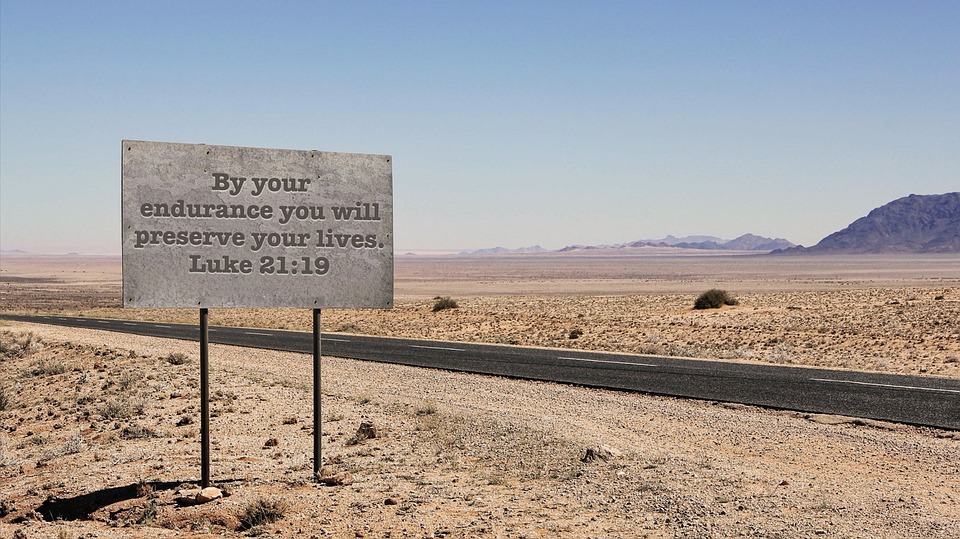Career Advice
10 Essential Questions to Ask in an Interview to Show You’re the Best Fit

Are you tired of feeling like you’re not prepared for job interviews? Do you want to stand out from the competition and show that you’re the best fit for the role? One of the most effective ways to do this is by asking the right questions during the interview. In this article, we’ll explore 10 essential questions to ask in an interview to demonstrate your skills, knowledge, and enthusiasm for the job.
Why Asking the Right Questions Matters
Asking questions during an interview is not only a sign of interest in the role, but it’s also an opportunity to gain valuable insights into the company culture, team dynamics, and job responsibilities. It’s a chance to show that you’re proactive, curious, and willing to learn. By asking the right questions, you can demonstrate your expertise, clarify any doubts, and gain a competitive edge over other candidates.
The 10 Essential Questions to Ask in an Interview
1. What are the biggest challenges facing the team or department right now, and how do you see this role contributing to solving them?
This question shows that you’re interested in understanding the bigger picture and how the role fits into it. It also gives you an opportunity to learn about the team’s pain points and how you can help alleviate them.
2. Can you tell me more about the company culture and values, and how this role embodies them?
This question demonstrates that you’re interested in being a part of a team that aligns with your values and work style. It’s also an opportunity to learn about the company’s mission and vision.
3. What are the short-term and long-term goals for this role, and how will success be measured?
This question shows that you’re interested in setting goals and achieving results. It also gives you an opportunity to learn about the expectations of the role and how you can contribute to the team’s success.
4. How does this role fit into the overall organizational structure, and who would I be working with closely?
This question demonstrates that you’re interested in understanding the role’s place within the organization. It’s also an opportunity to learn about the team dynamics and who you’ll be working with.
5. What opportunities are there for professional development and growth within the company?
This question shows that you’re interested in growing and developing your skills. It’s also an opportunity to learn about the company’s investment in employee development.
6. What are the most important qualities and skills you’re looking for in a candidate for this role?
This question demonstrates that you’re interested in understanding what the interviewer is looking for in a candidate. It’s also an opportunity to learn about the key qualifications for the role.
7. How does the company approach innovation and staying ahead of the curve in the industry?
This question shows that you’re interested in innovation and staying up-to-date with the latest trends. It’s also an opportunity to learn about the company’s approach to innovation.
8. What are the typical career paths for someone in this role, and how have past employees in this role progressed within the company?
This question demonstrates that you’re interested in understanding the potential career path for this role. It’s also an opportunity to learn about the company’s approach to employee development and retention.
9. What is the typical workflow and communication style within the team, and how does this role contribute to it?
This question shows that you’re interested in understanding the team’s workflow and communication style. It’s also an opportunity to learn about the role’s responsibilities and how you can contribute to the team’s success.
10. What is the timeline for filling this role, and when can I expect to hear back from you?
This question demonstrates that you’re interested in the timeline for filling the role. It’s also an opportunity to learn about the next steps in the process and when you can expect to hear back from the interviewer.
Conclusion
Asking the right questions during an interview is crucial to showing that you’re the best fit for the role. By asking these 10 essential questions, you can demonstrate your skills, knowledge, and enthusiasm for the job. Remember to tailor your questions to the specific role and company, and don’t be afraid to ask follow-up questions to gain a deeper understanding of the position.
FAQs
Q: What if I forget to ask some of the questions?
A: Don’t worry if you forget to ask some of the questions. The most important thing is to show your interest and enthusiasm for the role. You can always follow up with the interviewer after the interview to ask any additional questions.
Q: How do I know which questions to ask?
A: Research the company and role beforehand to get an idea of what questions to ask. You can also review the job description and requirements to get an idea of what the interviewer might be looking for.
Q: Can I ask questions that are specific to the company or role?
A: Yes, you can ask questions that are specific to the company or role. This shows that you’ve done your research and are genuinely interested in the position.
Career Advice
How to Stay Motivated During a Long Job Search

Let’s be honest—job searching can be emotionally draining. You update your resume, submit dozens of applications, tailor every cover letter, and still… no response. When the process stretches on for weeks or even months, it’s easy to feel discouraged, stuck, or tempted to give up altogether.
But here’s the truth: you’re not alone, and your effort isn’t going to waste.
In 2025, the hiring process is more competitive and complex than ever. Between automated systems, longer timelines, and shifting employer needs, even highly qualified professionals can face long stretches of uncertainty. The key is to stay motivated, focused, and mentally strong while you’re navigating it all.
Here’s how to do just that.
1. Set Weekly, Not Just Long-Term, Goals
Big goals like “get hired” are important—but they can also feel overwhelming when you don’t control the timing. Instead, break it down:
-
Apply to 5 roles this week
-
Connect with 2 new people on LinkedIn
-
Attend 1 networking event or virtual workshop
These smaller wins build confidence—and momentum.
2. Create a “Job Search Schedule”
If you’re applying all day, every day, burnout is almost guaranteed. Treat job searching like a part-time job: block off 2–4 hours a day, then give yourself permission to disconnect. Use the rest of your day for learning, hobbies, exercise, or even rest. Your mindset matters just as much as your résumé.
3. Track What’s Working (and What Isn’t)
If you’ve applied to 50 roles with no traction, it’s time to pause and reflect. Are you tailoring your resume? Are you applying to roles that truly match your skills? Are you following up or networking around those applications?
Data can help you make smarter decisions—and avoid spinning your wheels.
4. Celebrate Non-Job Wins
Land an informational interview? Got a recruiter to respond? Published a post on LinkedIn? Those all count. Every connection, every learning opportunity, every ounce of visibility is part of your momentum. Celebrate it.
5. Remind Yourself: Rejection Isn’t Personal
Most rejections aren’t about you. They’re about timing, budget, internal hires, or priorities you’ll never see. Don’t let a “no” make you question your worth. One yes is all it takes.
Final Thought
This season won’t last forever—but the skills, resilience, and clarity you build during it will. Keep going, keep growing, and keep showing up. The right opportunity might be closer than you think.
Career Advice
The Power of Informational Interviews (and How to Actually Get One)

In a job market where competition is fierce and online applications often feel like they’re going into a black hole, informational interviews have become one of the most powerful tools for career growth in 2025.
They’re not just about gathering information—they’re about building real connections, expanding your network, and gaining inside insights you won’t find on company websites or job boards. For career changers, recent grads, and even seasoned professionals, informational interviews can open doors that no résumé ever could.
But what exactly are they—and how do you get one without feeling awkward?
What is an Informational Interview?
An informational interview is a casual, one-on-one conversation where you ask someone questions about their career path, industry, or organization. It’s not a job interview. You’re not asking for a job—you’re asking for perspective.
You might learn:
-
What a day in their role actually looks like
-
What skills are most valuable in their industry
-
How they broke into the field (and what they’d do differently today)
-
Whether a company’s culture aligns with what you’re looking for
These conversations can help you make smarter career moves, avoid bad fits, and sometimes—yes—lead to future opportunities.
Why They Matter More in 2025
In an era of digital hiring and AI screening, people still hire people—especially those they know or trust. Informational interviews allow you to:
-
Bypass the algorithm by getting on someone’s radar before a job is even posted
-
Make better decisions by learning what a role really requires
-
Strengthen your network with professionals who are already doing what you want to do
And the best part? Most people are happy to talk about themselves and share advice—especially if you’re respectful of their time.
How to Ask for an Informational Interview (Without Feeling Awkward)
Here’s a simple 4-step formula that works:
1. Be clear and polite.
Let them know you’re not asking for a job—just 15–20 minutes of their insight.
Example message:
Hi [Name], I’m exploring a transition into [industry/role], and I’ve been really inspired by your journey. If you’re open to it, I’d love to ask a few quick questions about your career path and any advice you have. I know you’re busy, so even 15 minutes would mean a lot!
2. Keep it short and personal.
Mention something specific about their work—like a LinkedIn post, recent project, or role they hold—to show you’re genuinely interested.
3. Suggest a flexible format.
Phone call, Zoom, coffee—let them choose what works best for them.
4. Say thank you—twice.
Before and after the chat, always follow up with a sincere thank-you note. If they made a recommendation or shared a resource, let them know how it helped you.
What to Ask During the Conversation
Don’t just wing it. Come prepared with thoughtful, open-ended questions like:
-
“What’s one thing you wish you had known before entering this field?”
-
“What skills do you use most often in your role?”
-
“What advice would you give someone looking to follow a similar path?”
-
“Are there any trends in the industry that new professionals should be aware of?”
If the conversation goes well, you can close with:
“Is there anyone else you’d recommend I speak with to learn more?”
That one sentence could double or triple your network.
Final Thoughts
Informational interviews are less about getting hired now and more about getting ready, positioned, and known. In a world full of noise and automation, they offer something rare: human connection.
So stop waiting for the perfect job listing to drop. Start reaching out. A simple conversation could be the turning point in your career story.
Career Advice
Why Building a Personal Brand Matters More Than Ever in 2025

If you’re serious about growing your career in 2025, it’s time to stop thinking of a personal brand as “nice to have.” It’s no longer optional—it’s essential.
Today, opportunities aren’t just based on résumés. They’re based on how clearly you can communicate who you are, what you stand for, and the unique value you bring to the table. Whether you’re job hunting, building a business, or climbing the leadership ladder, a strong personal brand can open doors that traditional qualifications alone can’t.
Let’s break down why your brand matters—and how to start building one intentionally.
What Is a Personal Brand, Really?
Your personal brand is the story people tell about you when you’re not in the room.
It’s not just your LinkedIn bio or your résumé. It’s the full picture:
-
How you show up online and offline
-
How you communicate your ideas
-
The way you handle challenges
-
The reputation you build through your work and interactions
In short, it’s about being clear, consistent, and authentic about what you offer and what you care about.
Why It’s So Important Now
In a crowded and competitive job market, personal branding is how you stand out. Here’s why it matters more than ever in 2025:
-
Remote work and online hiring make first impressions happen digitally.
-
Career pivots are common, and your brand helps people connect the dots between where you’ve been and where you’re headed.
-
Companies are hiring for fit—not just skills. They want people whose values align with theirs.
Your brand can help you attract the right opportunities—and avoid wasting time on the wrong ones.
How to Start Building Your Personal Brand (Without Feeling Fake)
1. Clarify Your Message
Ask yourself: What three words do I want people to think of when they hear my name? Focus your content, conversations, and actions around those themes.
2. Show Up Consistently
Update your LinkedIn profile, your resume, and even your email signature to reflect your current strengths and goals. Post content that highlights your skills, values, and interests.
3. Tell Your Story
People remember stories more than bullet points. Share your career journey, lessons learned, and what motivates you.
4. Add Value First
Personal branding isn’t just self-promotion. It’s about contributing ideas, support, and solutions that show what you can offer.
Final Thoughts
Your personal brand is already being formed—whether you shape it intentionally or not.
Taking control of that narrative is one of the smartest moves you can make for your career.
Start simple. Pick one platform (like LinkedIn), get clear on what you want to be known for, and start showing up consistently.
Remember: your brand isn’t just about impressing others. It’s about standing in your truth and letting the right people find you.
-

 Career Advice5 months ago
Career Advice5 months agoInterview with Dr. Kristy K. Taylor, WORxK Global News Magazine Founder
-

 Diversity and Inclusion (DEIA)5 months ago
Diversity and Inclusion (DEIA)5 months agoSarah Herrlinger Talks AirPods Pro Hearing Aid
-

 Career Advice5 months ago
Career Advice5 months agoNetWork Your Way to Success: Top Tips for Maximizing Your Professional Network
-

 Changemaker Interviews4 months ago
Changemaker Interviews4 months agoUnlocking Human Potential: Kim Groshek’s Journey to Transforming Leadership and Stress Resilience
-

 Diversity and Inclusion (DEIA)5 months ago
Diversity and Inclusion (DEIA)5 months agoThe Power of Belonging: Why Feeling Accepted Matters in the Workplace
-

 Global Trends and Politics5 months ago
Global Trends and Politics5 months agoHealth-care stocks fall after Warren PBM bill, Brian Thompson shooting
-

 Global Trends and Politics5 months ago
Global Trends and Politics5 months agoUnionization Goes Mainstream: How the Changing Workforce is Driving Demand for Collective Bargaining
-

 Training and Development5 months ago
Training and Development5 months agoLevel Up: How Upskilling Can Help You Stay Ahead of the Curve in a Rapidly Changing Industry









